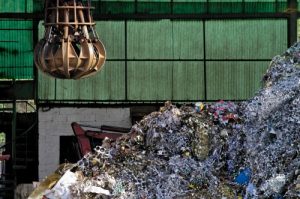Q. Is installing a leachate collection system required by the EPA for a solid waste landfill?
A. It is most likely that either the EPA or a state environmental agency will require a leachate collection system in a solid waste landfill.

The federal solid waste regulations at 40 CFR 257 and 258 provide the criteria for the design and operation of landfills that must be followed by all states. The
EPA allows states with an EPA-approved solid waste permit program (most states) to set more stringent requirements.
Under the federal solid waste regulations at 40 CFR 258.40(a), a municipal solid waste landfill (MSWLF) must be constructed:
- In accordance with a design approved by the chief administrative officer (Director) of the state agency responsible for implementing the EPA-approved state program,
provided the design ensures that the concentration values for chemicals set forth in Table 1 of 40 CFR 258.40 will not be exceeded in the uppermost aquifer at the relevant
point of compliance, as specified by the Director, or - With a composite liner and a leachate collection system that is designed and constructed to maintain less than a 30-cm depth of leachate over the liner.
This federal regulation provides two options for a MSWLF’s design, with the first requiring a state Director’s approval and the second specifying the need for a leachate collection system. The language of the rule suggests that the Director-approved design, while not specifically calling for a leachate collection system, must be as effective as that in the second option that requires a leachate collection system. In addition, 40 CFR 258.28 states that bulk or non-containerized liquid waste many not be placed in a MSWLF unless it has a leachate collection system.
Regulations for other types of solid waste landfills specifically require a leachate collection system:
- New and lateral expansions of coal combustion residual landfills (40 CFR 257.70)
- Research, development, and demonstration landfills (40 CFR 258.4)
Note that states are not allowed under the Resource Conservation and Recovery Act (RCRA) to have requirements that are less stringent than their federal counterparts.
